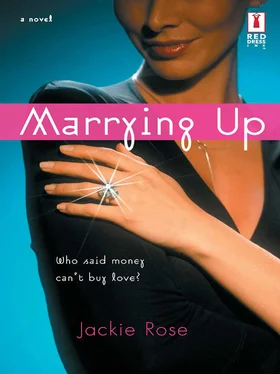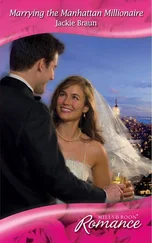“Why does everyone say that about him? He might. Stuart’s very sweet when he wants to be.”
“Don’t confuse sweet with charming,” I warn her. Although she tries to put on a feminist front, George is incredibly naive about men. Maybe it’s because she had virtually no exposure to straight men growing up or maybe it’s because she’s just overly trusting in general. In any case, her instincts are notoriously off when it comes to the unfairer sex.
“You don’t really know him, Holly.”
“Well, I know that he gave me a D in ‘Journalling for Profit, Part II’ and that was enough for me. As if I needed Humbert Humbert to tell me my memoirs wouldn’t sell a million…”
George rolls her eyes.
“What?”
“Don’t even go there,” she says.
“Fine. All I’m gonna say is that I can tell you for an absolute fact that that man will never change. How do I know for sure? Well, let me enlighten you, G—it’s because he doesn’t want any more out of the relationship. And he can tell that you do. That’s why he only calls every couple of months—he doesn’t want to give you the wrong idea. Because then the whole thing would be more trouble than it’s worth.”
I’ve tried to explain to George many times this most basic of all dating truths: that neediness is like new-relationship poison. This fact is one of the few things I know for certain about men. In much the same way that sharks can smell a drop of blood in the water from miles away, men can pick up on even the slightest whiff of neediness. A more sporting type might circle your lifeboat for a while, letting you think you have a chance of surviving, but don’t kid yourself: He’s just playing with you. He knows you’re wounded in there, and he’s smacking his lips. If, on the other hand, you put out the ice queen vibe right away—let him think he wants you more than you want him—then you’ve got some breathing room. And I’m not just talking about sex. Getting a man into bed is easy, no matter how desperate you may appear. The hard part is sustaining your desirability. The hard part is convincing him that he wants to stick around long enough to fall in love with you. Once you figure out how to do that, you’re in business.
“Yeah? Well maybe the reason you’re single is because you never let anybody know you’re actually interested in them,” George suggests. “Did you ever think of that? All you do is go on like a million first dates, and then reject every one of them before he has a chance to reject you!”
“Well, duh.” It isn’t anything that hasn’t occurred to me or a half dozen of my therapists before. But at least I’m reasonably confident that once I find a worthy prospect, I’ll be able to keep him. In the meantime, I’ll protect my heart from any further damage.
“Not all men are Jims, Holly. They’re not perfect, God knows, but they don’t have to be. Because neither are we.”
“How perfect is your professor?”
“Let’s just watch the damn movie,” she grumbles.
“Fine,” I say and press Play. “What is it, anyway?”
“How to Marry a Millionaire. It’s with Marilyn. And I don’t care if you hate it.”
“Wasn’t there anything with Brad Pitt?”
“I don’t know. Who cares? This is so much better… God, Holly. You’re, like, totally boy-crazy these days.”
George loves Marilyn Monroe because she was sexy and powerful and vulnerable all at once, and also because she was a size 12 and the whole world loved her for it. She’s seen all of her movies a thousand times. For me, though, Marilyn’s sadness fills every frame of every film she made. I imagine I would have liked her better before, when she was just Norma Jean Baker. Plain and simple.
“There must have been something with Brad Pitt…”
“There wasn’t.”
“Not even an old one?”
“Just shut up and watch.”
Purple moonlight filters through the gauze panels covering the open window, giving my bedroom an almost fluorescent glow. I glance at the clock—4:15 a.m. Everything is perfectly still.
Since insomnia is one of the few anxiety-related problems I don’t normally suffer from, I’m a bit confused. After thinking for a while, the image of Marilyn Monroe sneaking her glasses onto her face playing on a constant loop, a memory of Dr. Zukowski surfaces from among the usual places my mind goes when it wanders. She’s a behavioral therapist who once berated me ferociously in the middle of Pearl Street during an exercise to get me to step on sidewalk cracks. Something she said, lost on me then, flashes into my mind.
“Life isn’t really about luck or coincidence, Holly. Nor is it about destiny or kismet or any of that other stuff. You won’t win a Pulitzer just by sitting around collecting good karma and then waiting for your fingers to accidentally strike the right keys. And if your mother ever breaks her back—”
“Bite your tongue!” I’d interrupted.
She ignored me and went on. “…and if your mother ever breaks her back, it’ll probably be because she tripped over something. Not because you walked down the sidewalk like a healthy, well-adjusted person. The world just doesn’t work that way.”
“Doesn’t every action have a reaction?”
“No.”
“But I’ve always thought that life is like the game of pool…”
“It isn’t.”
“Pinball?”
“Nope… Well, maybe. But only if you think of yourself as the flippers and not the ball, see? Remember, Holly—you were the one who told me you want to be an actor, and not a re-actor.”
“Look,” I sighed. “I know you’re right. I want to be the flippers. And I know that my mom’s probably going be okay if I step on that crack, and that her health isn’t something I have any control over—but it feels wrong to do it. It seems so… I don’t know…reckless. Like, why take the chance?” It was lunchtime, a weekday, and pedestrians swarmed around us, irritated by our lack of motion.
Zukowski shook her head. “It only feels that way because you’ve been avoiding the cracks for so long. This problem isn’t something I can just turn off inside your head. To overcome it you’re going to have to actually do it. Over and over again until it doesn’t feel wrong. Until it just feels normal. And soon it won’t feel like anything at all. Okay?”
I nodded.
“So let’s start with our deep breathing…good…good…and now we can try visualizing it, just like we did upstairs in my office…”
Bravely, brazenly, I took a step in my mind. And another. And then another, letting my feet fall where they might. It wasn’t so hard.
“Now do it,” she prodded.
I raised my foot and started to move forward, but an image of my mother in traction weaseled its way into my brain. My chest tightened and my palms began to sweat. I retreated.
“Holly,” she sighed. “How do you expect to move forward if you can’t take one simple step?”
She could barely conceal her exasperation, even though my insurance company was paying her $115 an hour.
“I’ve been getting along fine for years,” I informed her. “You were the one who seized on this whole thing. I just mentioned it in passing, and jeez, look at us now.”
“Let me put it in perspective for you. I have patients who can’t leave their houses. Patients who can’t work or eat or sleep. People who are so paralyzed with fear that their lives are barely lives at all. I can help you through this, Holly, but you have to be willing to move.”
“I’m pretty happy, you know,” I said. “I just want to be more happy. I want to be able to write my book.”
And this is what she said: “The difference between a dream and reality is the difference between a goal and a plan. If you want to write a book, then commit yourself to doing whatever it takes to make that happen, because things will never change unless you change them.”
Читать дальше












